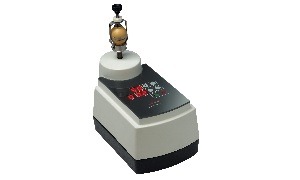
The Mini-Mill Pulverisette 23 claims to be the ideal tool for both wet grinding and dry or cryogenic grinding.
According to the company, the instrument’s spherical grinding bowl ensures much better performance in grinding, mixing and homogenising compared with similar models.
With a size of 20 x 30 cm and a weight of 7 kg, it has a small footprint in the laboratory.
The system is ideal for:
Chemical analysis: Comminution and homogenisation of grinding samples for creation of compacts for x-ray fluorescence and infrared spectroscopy (e.g. potassium bromide tablets)
Environmental research: Soils in contaminant analysis, humic acid determination, botanical materials in residue analysis of fertilisers and pesticides, pulping of seeds
Pharmaceuticals and medicine: Kidney and gallstone analysis, breaking up tablets, pharmaceutical ingredients
Forensic analysis: Hair analysis for genetic testing and drug tests, preparation of extremely small particles for chemical analysis, textile fibre and bone analysis
Biotechnology: Comminution of deep frozen tissue samples
Material synthesis: Creating mixtures for catalytic tests on polymers, ceramic analysis
The 5 ml PTFE bowl is suited for use with the FRITSCH PULVERISETTE 23 in biotechnology applications.
For example, it is possible to break up fungus or yeast cells, deep frozen tissue and cells in only a few minutes with this special plastic bowl and a 10 mm steel ball. It is also possible to pre-cool the entire bowl in liquid nitrogen.
Features include:
- Fast, reproducible comminution
- For smallest sample quantities up to 5 ml
- Max. feed size 6 mm, final fineness 5 ?m
- Effective grinding due to spherical grinding bowl with plug-style closure and practical quick clamping system
- Grinding bowls and grinding balls in 5 different materials and 3 different sizes available
- Precisely adjustable configurable and reproducible grinding time
- Grinding bowl oscillations: 900 - 3,000 oscillations/min at 9 mm amplitude
- Simple operation, cleaning and maintenance





